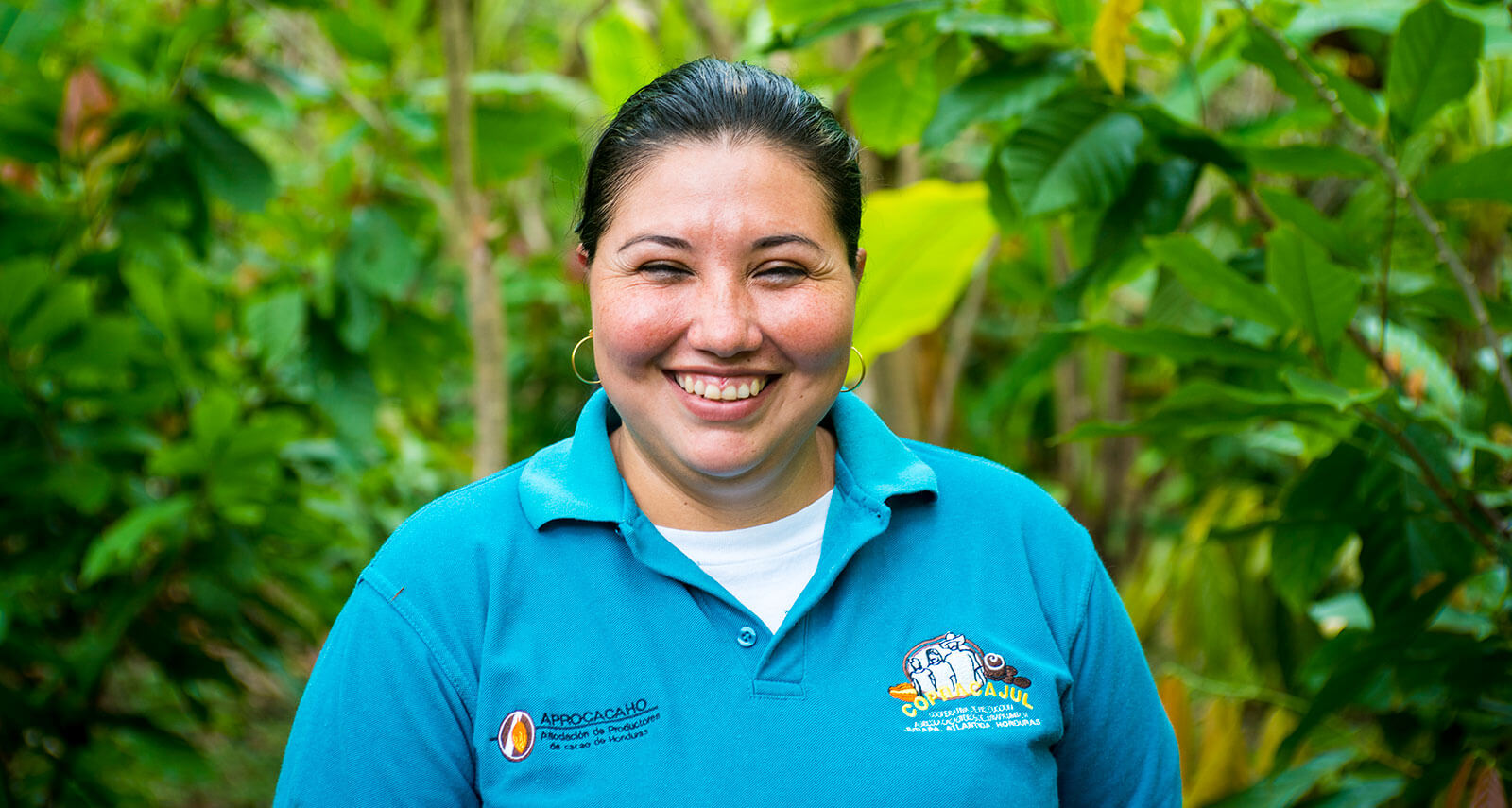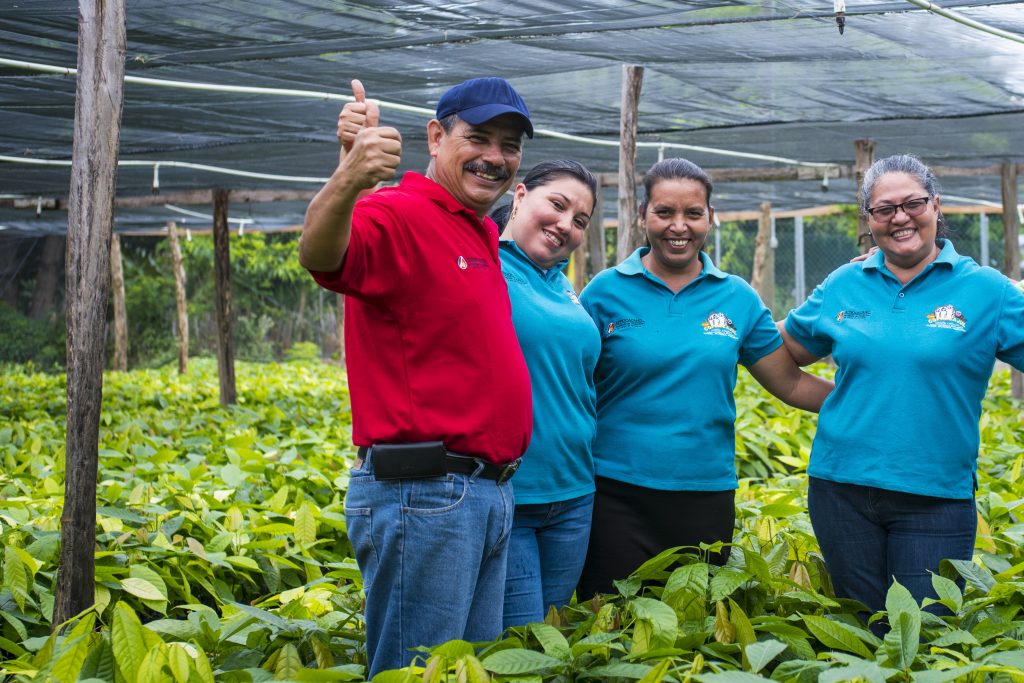Harvesting food security in Honduras
Story

The air is thick and humid. The sun is burning down on the small farm where Teresa stands in the shade of her cacao trees. As she reaches out to touch one of the large pods hanging from the branch in front of her, she reflects on everything she’s overcome.
Her husband, dying suddenly of a heart attack. Being left alone with four young children, a small farm and little knowledge of the work required. Weighing her options: sell the land and try to scrape by with almost nothing? or learn to run a farm?
At the time, she didn’t know her choices would change not only her family’s future, but the futures of many other women.
Honduras is a country of deep contrasts. Along with tropical rainforests, turquoise waters and white sand beaches, the country is one of widespread poverty and inequality.
Women have few rights and are faced with one of the highest rates of intimate-partner violence in the world. And, as the second poorest country in Central America, Hondurans experience extremely unequal income distribution and high unemployment rates.
Over half of the country lives on less than two dollars a day; the majority of those are women.
Unwilling to give up the land her husband farmed to provide for their family, Teresa found and joined a local farming co-operative. It was there she received her first seedlings; cacao.

Knowing there was a group of people behind her every step of the way, she began to learn how to manage and run her farm. “After joining the co-op, I felt protected,” says Teresa. “I never had to leave my children to go and beg because I work very hard on the farm.”
Today, Teresa is a successful cacao farmer, as well as a mentor and leader within her co-operative. Through a program developed by Cuso International, women farmers are provided with the skills and knowledge they need to be successful.
“Whenever there’s a need to gather the women together and share new skills, she’s the one I turn to because when she speaks, her community listens,” says Karen Pavón, Cuso’s Country Director in Honduras. “Teresa is an inspiration to many women who are determined to escape poverty and give their children a brighter future.”
When Cuso first partnered with the co-operative, only five per cent of its members were women. Now, more than 30 per cent are women. With food and income security, Teresa and her fellow farmers are important contributors not just to their own families and community, but to the entire country.
Currently however, the COVID-19 pandemic is affecting food security and financial stability. Many female farmers live in one place but farm in another. With restrictions on movement, many aren’t able to leave their homes to tend their farms, let alone access essential goods and services.
While Cuso has adapted to the current environment by providing emergency relief by means of food delivery and the provision of accessible health information, our long-term goal of supporting livelihoods like Teresa’s remains as important as ever. Cuso continues to identify innovative solutions to support the life-changing work of empowering the most marginalized during this critical time. Our ability to quickly modify how we work will ensure that Cuso programming continues to reduce poverty and inequality in the communities where we work.
You can help support the futures of farmers like Teresa by making a donation in her name. In the face of the global COVID-19 pandemic, Cuso’s work is needed more than ever.